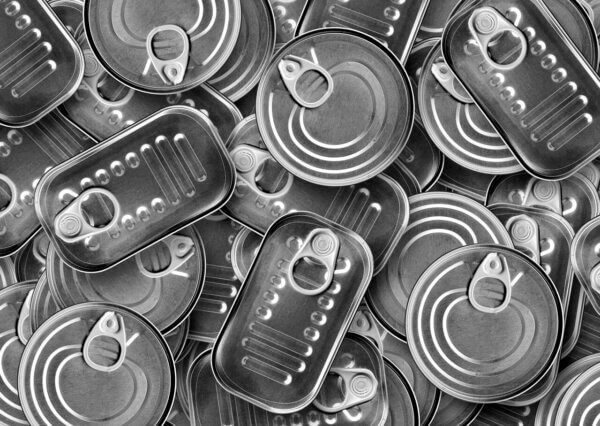
According to Bloomberg News, 4.7 million metric tons of BPA valued at about $8 billion was produced in 2012. The chemical has been linked to birth defects and decreased social activity that spans generations.
NOTE: MANY OF THESE BRANDS HAVE UPDATED THEIR POLICIES SINCE THE POST WAS WRITTEN – IF YOU KNOW OF AN INACCURACY ON THIS PAGE, PLEASE REPORT IT IN THE COMMENTS.
These Brands Use BPA Free Cans
American Tuna: All canned tuna.
Amy’s: All products. Most-popular are their lentil soup, refried beans, and chili.
Baby Formulas and Food: Beech Nut, Enfamil, Gerber, Baby’s Only, Pedialyte, PediaSure, and Similac are now all in BPA-free packaging. New lining type unknown.
Beach Cliff: All canned fish, including fish steaks and sardines.
Bearitos: All products, people like their organic, vegetarian refried beans.
Bionaturae: All products including organic strained tomatoes, organic tomato paste, and organic diced tomatoes.
Bumble Bee: Tuna and sardines canned in the US.
Cento: All products. Best-known for their canned tomatoes.
Crowne Prince Natural: Tuna, salmon, kippers. See this link for specifics.
EarthPure Organic Tomatoes: All tomato products.
Ecofish (Henry & Lisa’s): Canned Tuna.
Eden Foods: All 33 of its organic beans (black beans, pinto, and cannellini beans are most-popular). Also chili, rice & beans, and refried.
Farmer’s Market: All products, including their popular organic pumpkin.
Genova: Canned tuna.
Hain Celestial Group: (Earth’s Best, Hain Pure Foods, Health Valley, Hollywood, Imagine Foods, Spectrum, Walnut Acres and Westbrae Natural): as of June 2014 all products are canned in non BPA linings comprised of modified polyester and or acrylic.
Hunt’s Tomato Products: Their popular tomato sauce and tomato paste are in BPA-free cans. Their plain tomatoes are lined with vinyl.
Juanita’s: All canned foods, including their popular menudo and hominy.
Jyoti: All canned Indian foods. Most-popular: Punjabi Chhole (Chickpeas with Potatoes and Onions).
King Oscar Norwegian: All products. Sardines packed in olive oil are their most-popular product.
Muir Glen: All products. Their crushed tomatoes with basil are Amazon’s #1 best-seller.
Native Forest: Coconut Milk.
Natural Sea: Tuna, salmon and clams.
Ocean Brands: Salmon, tuna, oyster, crab, snackit, snack n lunch and fish salads. (Not the shrimp, clams and food service size.)
Oregon’s Choice: Canned Tuna.
Pillar Rock: All canned fish, known for their canned salmon.
Port Clyde: All canned fish, including sardines.
Raincoast Trading: All canned fish. Their solid white albacore tuna is a big seller after Andrew Zimmern toured the factory on Travel Channel.
Sprouts Farmers Markets: All private label canned products.
Trader Joe’s Brand:
MOST Canned Fish, Chicken & Beef
(Except: Sardines, Crabs, & Cherrystone Clams)
MOST Canned Beans, Fruits & Vegetables
(Except: Mandarins, Hatch Chilies, Artichokes & Olives)
ALL Canned Coconut Milk & Coconut Cream.
ALL Pet Food.
FOUR Canned Soups & Stews:
Organic Black Bean Soup, Organic Lentil Soup, Organic Split Pea Soup, and Organic Vegetarian Chili.
Tyson: Canned chicken.
Vital Choice: Canned salmon, albacore tuna, sardines and mackerel.
Wegman’s: Private label tomatoes, peaches, fruit cocktail and apricot.
Whole Foods: All ‘365 Everyday Value’ canned tomatoes, fish, vegetables, coconut milk.
Wild Planet: Canned Sardines and 5 oz tuna.
Tetra-pak (aseptic containers) are lined with Polyethylene, not BPA. ‘Pomi‘ Brand and Hunt’s Chopped tomatoes in tetra-paks are becoming more widely available.
These Brands’ Cans Sometimes Have BPA
Eden Foods: Canned tomato products (to avoid BPA, look for their new glass jars).
Trader Joe’s Brand: Canned Artichokes, Crab, Cherrystone Clams & Oysters, Dolmas, Mandarins, Hatch Chilies, Grecian Style Eggplant with Tomatoes & Onions, Olives, Sardines. All soups, chilis and stews, except those listed above.
Whole Foods: Some ‘365 Everyday Value’ beans and other products not listed above.
Brands to Avoid — All Use BPA Cans
- A Taste of Thai
- Brad’s
- Bush’s
Campbell’s Soups:Has announced that it will completely phase out BPA from its cans by the middle of 2017. A 2016 study conducted by Michigan’s Ecology Center (pdf) found that 100% of Campbell’s cans tested contained BPA.- Carnation
Chef Boyardee– Changes announced 2015.- Chi-Chi’s
- Comstock
- Del Monte
- Duncan Hines
- Eagle
- Full Circle
- Goya
- Green Giant
- Healthy Choice
- Hormel
La Choy– Conagra announced changes 2015.Libby’s– Changes announced 2015.- Musselman’s
- Ocean Spray
- Old El Paso
- Progresso
- Spam
- Thai Kitchen
- Wolfgang Puck’s
To look up a particular product see: ewg.org/foodscores
Other BPA Items to Avoid
BPA is found in:
- Food and drink packaging
- Shiny store receipts
- The lining of food cans
- The lining of aluminum cans
- Milk container linings
- The inside of bottle tops
- Water Pipes
- Dental sealants
- Polycarbonate tableware
- Plastic Wrap
- Some Newspaper Ink
- Carbonless Copy Paper
Pay special attention to shiny thermal receipts: ATM receipts, cash register receipts, prescription labels, lottery/airline tickets, etc., many contain BPA.
- Don’t hand children receipts that might contain BPA!
- Hand sanitizer increases absorption of BPA!
- Don’t recycle receipts that might contain BPA!
BPA Research
In 2009 The Environmental Working Group detected BPA in 9 of 10 samples of umbilical cord blood it collected from newborns and in 2007 put out a study showing that BPA exposure is ‘unsafe’ in 11 percent of all canned food.
At the EWG’s urging the FDA Office of Food Additive Safety tested cans for BPA in 2011 and found that 71 of 78 canned foods tested were tainted with BPA. In both the EWG and FDA studies, green beans were the most heavily contaminated. In the FDA tests, a single serving of beans contained as much as 730 parts per billion BPA. In the cans the EWG tested, the EWG found a single serving contained enough BPA to expose a woman or infant to levels more than 200 times the government’s safe level of exposure for industrial chemicals.
In the 2010 study, ‘No Silver Lining‘, food from 50 cans collected from 19 US states and Ontario, Canada were tested for BPA contamination. Over 90% of the cans tested had detectable levels of BPA, and some at much higher levels than had been detected previously. The study’s tests show that meals involving one or more cans of food can “cause a pregnant woman to ingest levels of BPA that have been shown to cause health effects in developing fetuses in laboratory animal studies.” Consumer Reports’ latest tests of canned foods found that almost all of the 19 name-brand foods they tested contain some BPA. “A 165-pound adult eating one serving of canned green beans from their sample, could ingest about 0.2 micrograms of BPA per kilogram of body weight per day, about 80 times higher than the experts’ recommended daily upper limit.”
The Breast Cancer Fund released a product testing report called BPA in Thanksgiving Canned Food. For the study canned goods were purchased in California, Massachusetts, New York and Minnesota. Four cans of each of the common Thanksgiving staples: Campbell’s Cream of Mushroom Soup, Campbell’s Turkey Gravy, Carnation Evaporated Milk (by Nestle), Del Monte Fresh Cut Sweet Corn (Cream Style), Green Giant Cut Green Beans (by General Mills), Libby’s Pumpkin (by Nestle) and Ocean Spray Jellied Cranberry Sauce were purchased. The results showed a tremendous variability in BPA levels in the canned foods tested, from non-detectable to 221 parts per billion. Variability was extreme even among cans of the same product made by the same company, which means that consumers have no way of knowing how much BPA is in the canned food they’re buying and consuming. breastcancerfund.org
A 2011 study by Harvard University found much higher levels of BPA in people who ate canned soup. Researchers analyzed the urine of seventy-five people for BPA. Each participant ate a 12-ounce serving of either fresh or canned soup for five days in a row. They were advised not to otherwise alter their regular eating habits. After a two-day break, the groups switched and ate the opposite type of soup. The study showed the canned soup eaters had 1,221 per cent higher levels of BPA in their urine than those who ate the fresh soup.
An August, 2012 study out of the University of Virginia, shows that low dose BPA is associated with decreased social activity in mice for up to four generations!
In September, 2012 a Washington State University researcher and colleagues have found that BPA disrupts female rhesus monkey’s reproductive systems, causing chromosome damage, miscarriages and birth defects. Again the research shows the effects to be generational. Patricia Hunt, the head researcher says “the really stunning thing about the effect is we’re dosing grandma, it’s crossing the placenta and hitting her developing eggs, and if that fetus is a female, it’s changing the likelihood that that female is going to ovulate normal eggs. It’s a three-for-one hit.” The rhesus’ reproductive system are most human-like of any mammal and were tested with BPA levels similar to those in humans.
Eden: The Good Guys
Since 1999 Eden Foods has used steel cans coated with a ‘baked-on oleoresinous c-enamel’, which does not contain BPA. Oleoresin is a non-toxic mixture of oil and resin extracted from plants, such as pine or balsam fir.’ The cost is currently 2.2 cents more (14%) than cans with industry-standard BPA epoxy liners. Yet that natural liner is not approved by the FDA for acid foods, such as tomatoes.
Hopefully in the very near future, alternative liners will be put on the market as more research is completed. But as of now, be aware that canned tomatoes, soups and pastas are your highest sources of BPA due to their acid consuming the lining of the can. Canned green beans and coconut milk have also shown very high levels of BPA.
From Eden’s website:
Although we successfully achieved a BPA free alternative for low-acid food such as beans, the canning industry has no suitable (in our opinion) can for high-acid food like tomatoes. After years of trying to realize one, Eden chose to move its canned tomatoes into amber glass jars to avoid BPA. In 2011 Eden moved a third of its tomatoes to amber glass, away from cans. The cans still have a baked on r-enamel. Due to the acids in tomato, the lining is epoxy based and does contain a minute amount of BPA. It is however in the ‘non-detectable’ range according to Eden’s independent laboratory extraction tests. The test was based on a detection level of 5 ppb (parts per billion). Our goal is zero.
A search for a lid for the glass jars again confirmed ‘there’s no such thing as the perfect food package.’ Regardless, we found the best there is. The inside of the twist caps has two coats of sealer between the food and the metal of the cap. The first applied coating has some BPA in it. The second protective sealant over the metal does not contain any, and isolates the first coating from contact with the jar’s contents.
According to the Environmental Working Group, the amount of BPA in receipts can be 1,000 times that found in cans or bottles. “Retail workers carry an average of 30 percent more BPA in their bodies than other adults. The Japan Paper Association began to halt the use of BPA in 1998, completing the phase-out by 2003.” www.ewg.org/bpa-in-store-receipts
In January 2013, Suffolk County, NY passed legislation banning BPA in cash register receipts.
Although the rest of us can most likely count cans as our largest source, studies show that returning to fresh, uncanned foods reduces (not eliminates) BPA levels considerably in a rather short time.
BPS
Bisphenol S effects have yet to be studied as extensively as BPA, but due to it being a bisphenol cousin it has many of the same negative toxicological effects as BPA.
A June, 2012 study shows that BPS (not as well tested as BPA, but potentially as harmful) has been replacing BPA in paper products.
A 2013 University of Texas study shows that BPS has similar damaging hormonal traits as those of BPA — the list includes the thermal paper sonograms are printed on!
More Info On BPA
www.edwardandsons.com/native_info
www.blog.wholefoodsmarket.com – good post
www.p65warnings.ca.gov – includes a list of companies
Be Heard On BPA
How about an e-mail to those companies you purchase canned food from? You are welcome to copy and paste this example if you would like.
Dear Food Company,
Although it is true that the scientific studies regarding BPA exposure are conflicting and confusing, why not be safe rather than sorry and line your cans without the addition of the hormone distruptor BPA.
Eden Foods has been doing that for more than a decade and they estimate an initial additional cost of 2.2 cents per can (until a safer, cheaper, more natural solution comes to light).
As a customer, I promise to pay the additional 2 cents for your product if you go BPA-free. But if you do not, my only recourse is to discontinue use of your product.
Sincerely,



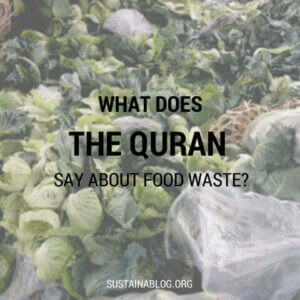
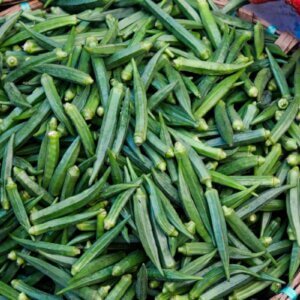

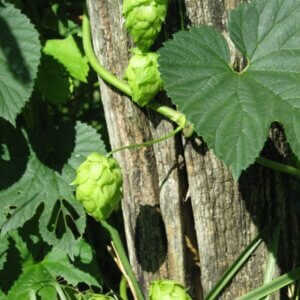

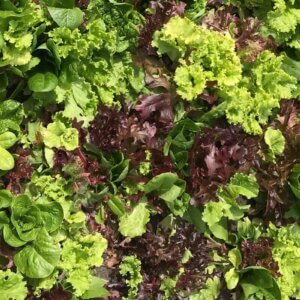






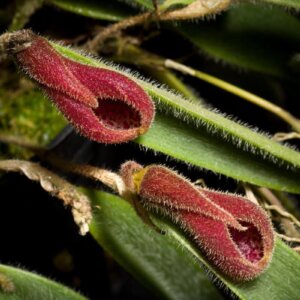




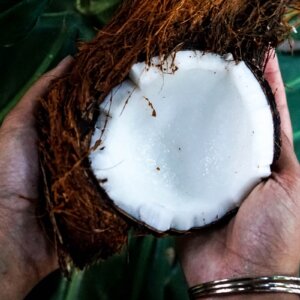

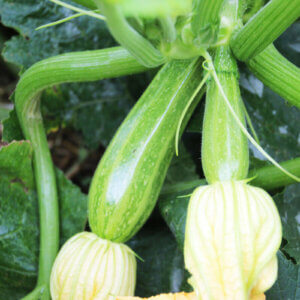













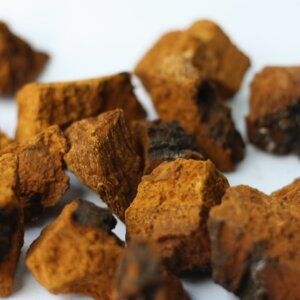
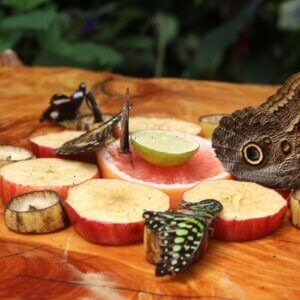
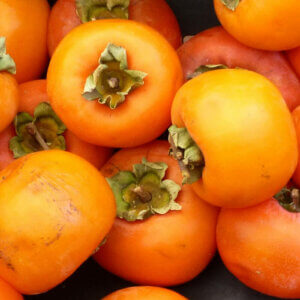
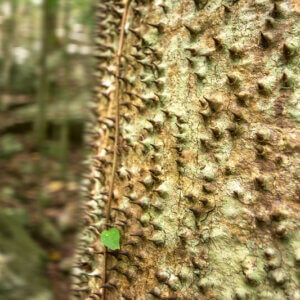

According to this website Con Agra is safe…..I also emailed them and got a response back that confirms:
Hello Nancy,
Thank you for your email.
We began converting our packaging several years ago, and several of our brands have been in non-BPA lined packaging for some time. As of the end of July 2015, all of our products made in facilities in the US and Canada are in packaging with non-BPA liners. If the product you have was made before July 2015, it may use an epoxy liner. We’re confident this packaging that contains BPA is safe and we hope you enjoy it.
Thanks again for your interest in our products, Nancy.
Sincerely,
Gina
Consumer Affairs Representative
ConAgra Foods
Case: 63245915
Since all the cans that I do buy in this brand are recent,they SHOULD be OK…..
Thanks for sharing Nancy!
While this is not related to cans,it is interesting to know:
https://www.seattleorganicrestaurants.com/vegan-whole-food/foods-banned-in-other-countries-but-we-eat-in-us.php
MANY dangers other than food packaging!!!!!…..
This article is a lifesaver! I had no idea about the affects of BPA and the different brands that are potentially harming my family however, I am really delighted to see that Pediasure uses BPA free cans as I give my little ones this product regularly. I wouldn’t know what to do if I couldn’t give my children Pediasure anymore because I believe it helps them so much with their development physically and mentally! Great to see that Pediasure and the other brands mentioned are doing things the right way with BPA free cans 😀
I would like to know about Kroger Simple Truth Organic beans. I buy lots of those thinking they are healthier than non organic. Are the cans poisoning my family?
Hi Michelle — According to Kroger, all Simple Truth cans are now using BPA-free liners.
https://sustainability.kroger.com/supply-chain-ingredient-safety.html
“As of May 2016, corporate brands has converted 370 canned goods to Non BPA liners. This includes all canned offerings under our Simple Truth Organic® brand.”
Your article is in direct opposition of Chef Boyardee stating they have no BPA: https://www.conagrabrands.com/news-room/news-conagra-foods-removes-bpa-from-cans-across-portfolio-2072842
That’s probably new since the article was written. Thanks for reporting the update.
Love this article and its comprehensive info!! I found it searching for beer cans which are BPA-free…. is it possible you know of any? At all?? I have to cook with one for my job (beer can chicken) and would hate to toss the cooked product…. 🙁
Are there any seltzer cans that are BPA free? Adirondacks claims to be BPA free…any others?
This site was very helpful, but missing the brand I’m checking for.
Please add Costco’s Kirkland brand
A Response from Bush’s Baked Beans on 07/20/2017:
Dear John:
Thank you for contacting us regarding our BUSH’S® products.
Bush Brothers & Company is committed to producing safe and nourishing products that consumers love. The United States Food and Drug Administration (FDA) has confirmed the safety of BPA and other materials for use in the linings of food cans. We heard from some consumers that they would prefer liners that do not contain BPA. Therefore, we began packing our great tasting products in cans with FDA approved coatings that do not contain BPA. However, some cans with the earlier coating may still be found in stores.
We respect the safety findings of the FDA and are listening to our consumers. For more information, please contact the Grocery Manufacturers Association 1350 I (Eye) Street, Suite 300 Washington, DC 20005, phone: (202) 639-5900, online: https://www.gmaonline.org.
Again, we thank you for taking the time to contact us. We appreciate your interest in our products.
Sincerely,
Taylore Sanzo
Consumer Relations Coordinator
BPA FREE IS NOT SO FREE THERE USING BPS INSTEAD ITS JUST AS BAD. GO BACK TO GLASS. NO BPA OR BPS ?
BPA is only one of the many chemicals that leach from plastics. Companies that crow about having BPA free cans are not telling you the whole truth.
What we should be asking is “is the plastic lining of your container leaching ANYTHING into the food?”. I don’t care if the FDA says there are safe levels of pthalates for me to eat…I don’t want to eat it.
The enormous companies that produce our food and food packaging in the USA are not required to disclose this information and there is a revolving door between federal agencies and corporate executives. Do you think they’re main concern is our well being?
Wild Planet Wild Mackerel Fillets-No BPA.
I have read in ypur article that Vital Choice caned sardines and caned salmon BPA free but that company do not have that claim on the cans and representative explained to me that we can not use that “BPA free cans” claim because there is some founded in testing . Thanks
Vinyls, acrylics, and polyesters are plastics.
Polyethylene is also a plastic.